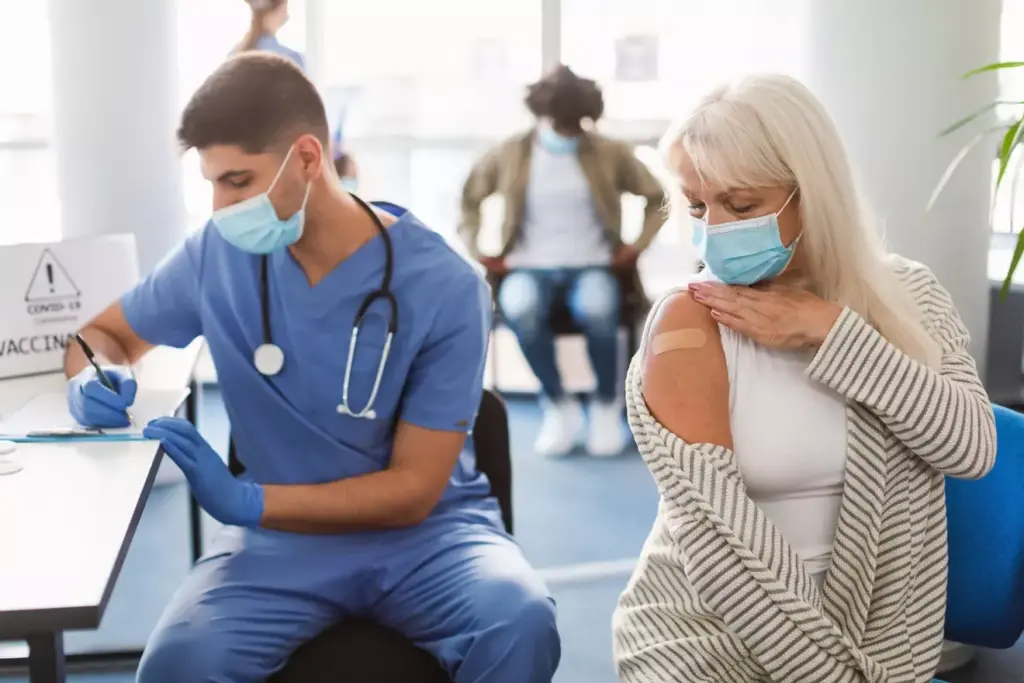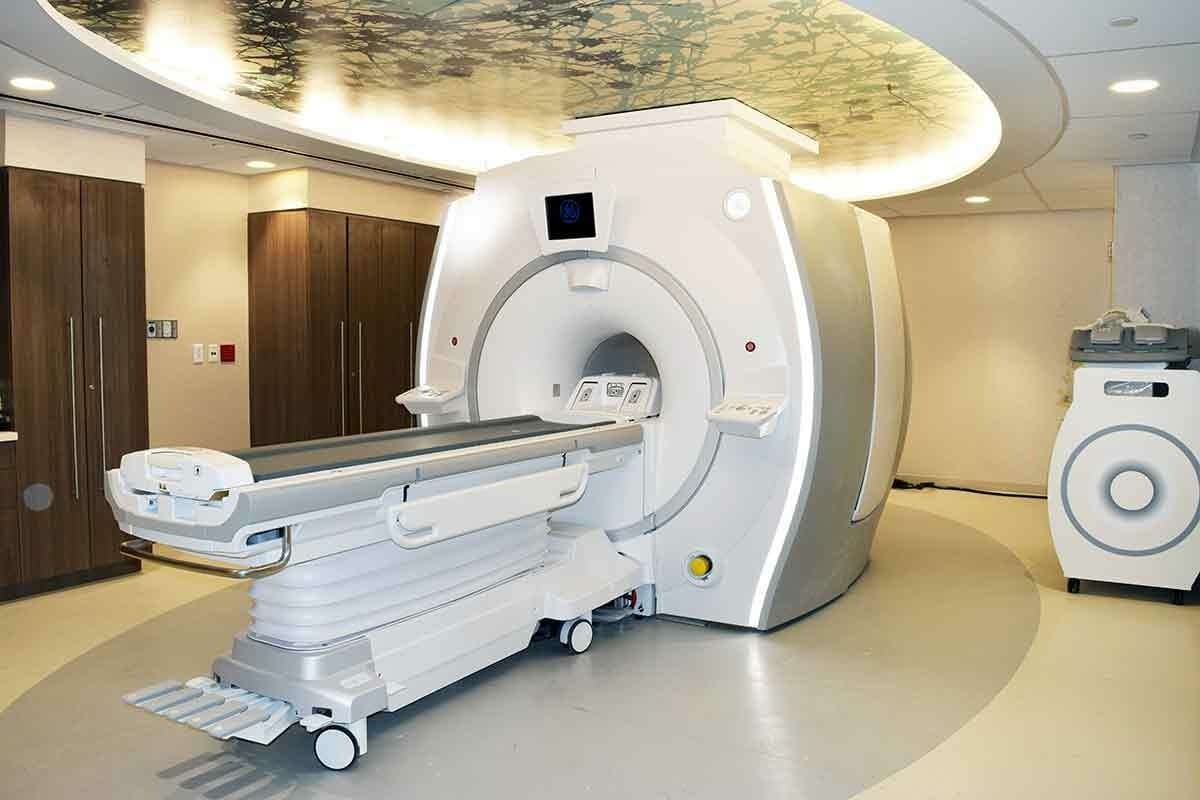Last Updated on November 26, 2025 by Bilal Hasdemir

Chemotherapy is a key treatment for many cancers, but it can cause side effects like coughing. For those going through chemotherapy, a constant cough can really impact their life. It can mess with their sleep and even make them less likely to stick with their treatment.
At Liv Hospital, we know that coughing during chemotherapy worries many patients. Research shows that 65–75% of lung cancer patients have a chronic cough. This problem gets worse as the disease advances and the tumor grows.
We see how important it is to tackle coughing caused by chemotherapy. Helping patients manage this symptom can greatly improve their life quality.
Key Takeaways
- Chemotherapy can cause coughing due to irritation of lung tissue and increased mucus production.
- Up to 75% of lung cancer patients experience chronic cough during treatment.
- Managing cough is key to better patient outcomes and quality of life.
- Understanding why chemotherapy causes cough helps in finding ways to manage it.
- Putting patients first is vital in dealing with cough during chemotherapy.
The Relationship Between Cancer Treatment and Respiratory Symptoms
We will look into how cancer therapy impacts lung health and how often cancer patients cough.
The Prevalence of Coughing in Cancer Patients
Coughing is a common symptom for many cancer patients, often due to chemotherapy. Research shows that a large number of patients cough as a side effect of their treatment.
“Coughing is a frequent complaint among cancer patients, affecting their quality of life and overall well-being.”
The frequency of coughing can vary. It depends on the type of chemotherapy and the patient’s individual factors.
How Respiratory Symptoms Impact Quality of Life
Respiratory symptoms like coughing can greatly affect a patient’s life. They can cause discomfort, anxiety, and sleep disturbances. It’s important to manage these symptoms well to improve patient care.
By understanding coughing in cancer patients, healthcare providers can find better ways to help. This can make treatment easier and less stressful for patients.
Chemo and Coughing: Understanding the Mechanisms
To understand why chemotherapy causes coughing, we need to look at how it affects the lungs and airways. Chemotherapy treats the whole body, and it can have big effects on breathing.
Direct Irritation of Lung Tissue
Some chemotherapy drugs can irritate lung tissue directly. This irritation causes inflammation and damage. The body tries to clear the airways by coughing.
For example, drugs like bleomycin can harm the lungs. This can lead to coughing and other symptoms.
Inflammatory Responses
Chemotherapy can also start inflammatory responses in the lungs. This makes breathing symptoms worse. The airways become more sensitive and reactive, making coughing more likely.
The inflammation can also lead to the production of harmful cytokines. These cytokines can damage tissue and cause coughing.
Increased Mucus Production
Chemotherapy can also make the airways produce more mucus. Some drugs change the mucus’s composition and amount. This makes it harder to clear, leading to a productive cough.
Understanding these mechanisms is key to managing chemotherapy-induced coughing. Healthcare providers can then tailor treatments to meet each patient’s needs.
Chemotherapy Agents Most Likely to Trigger Cough Symptoms
Chemotherapy fights cancer well, but some drugs can cause coughing. Knowing which drugs are riskier helps patients and doctors manage side effects better.
Taxanes (Paclitaxel and Docetaxel)
Taxanes, like paclitaxel and docetaxel, treat many cancers. They stop cells from dividing but can also cause hypersensitivity reactions and lung problems, leading to coughing.
- Paclitaxel can cause respiratory symptoms because of its solvent, leading to allergic reactions.
- Docetaxel is less likely to cause hypersensitivity reactions than paclitaxel but can also lead to coughing and other lung issues.
Platinum-Based Drugs (Cisplatin and Carboplatin)
Platinum-based chemotherapy drugs, such as cisplatin and carboplatin, treat various cancers. They can damage lung tissue, causing coughing.
- Cisplatin can cause kidney and ear damage but also lung damage.
- Carboplatin is less toxic than cisplatin but can also cause respiratory side effects, including coughing.
High-Risk Agents: Bleomycin and Methotrexate
Some chemotherapy agents are more likely to harm the lungs. Bleomycin and methotrexate are two such drugs.
- Bleomycin treats testicular cancer and Hodgkin’s lymphoma but can cause lung fibrosis, leading to chronic coughing.
- Methotrexate treats cancers and autoimmune diseases and can cause lung inflammation, leading to coughing.
Newer Targeted Therapies and Their Effects
New targeted therapies have changed cancer treatment, being more precise. But, they can have unique side effects. Some can cause pneumonitis or other lung problems, leading to coughing.
These drugs target specific cancer growth pathways. While they are often better tolerated, they need careful monitoring for lung side effects.
How Cancer Itself Contributes to Coughing Symptoms
It’s important to know how cancer affects coughing. Cancer can harm the body, including the lungs and airways. This can lead to breathing problems.
Tumor Location and Airway Irritation
Tumors near the lungs or airways can irritate and block them, causing coughing. A tumor can also set off cough receptors in the airways. The tumor’s location greatly affects how bad the coughing is.
- Tumors in the central airways are more likely to cause coughing due to direct irritation.
- Peripheral tumors may cause coughing through mechanisms like pleural involvement or secondary infections.
Bronchial Narrowing and Obstruction
Cancer can narrow or block the bronchi. This can happen through a tumor pressing on them or growing inside. This narrowing can cause coughing. The extent of narrowing affects how severe the symptoms are.
- Partial obstruction can cause persistent coughing due to the accumulation of secretions.
- Complete obstruction may lead to more severe complications, including post-obstructive pneumonia.
Pleural Effusion and Other Pulmonary Complications
Pleural effusion is when fluid builds up in the pleural space. It’s common in cancer patients. This can lead to coughing, shortness of breath, and chest pain. Other lung problems, like pneumonitis or lymphangitic carcinomatosis, can also cause coughing.
Managing coughing in cancer patients needs a detailed plan. This plan should consider the cancer, its treatment, and any complications. By understanding these, doctors can help reduce coughing and improve life quality for cancer patients.
Additional Cancer Treatments That May Worsen Coughing
Other cancer treatments can also affect breathing. Coughing is common in cancer patients. It can get worse with different therapies.
Radiation Therapy and Radiation Pneumonitis
Radiation therapy is used for many cancers. But, it can harm the lungs when used on the chest. This can lead to coughing, shortness of breath, and fever. The severity of radiation pneumonitis varies depending on the dose and area treated.
A study in the Journal of Clinical Oncology found 15% of patients get lung inflammation from chest radiation. Early treatment is key to avoid lung damage.
Immune Checkpoint Inhibitors and Pneumonitis
Immune checkpoint inhibitors can also harm the lungs. They make the immune system fight cancer but can also attack healthy lung tissue. The incidence of pneumonitis varies among different immune checkpoint inhibitors.
“The use of immune checkpoint inhibitors has revolutionized the treatment of various cancers, but it comes with a unique set of side effects, including pneumonitis.”
Combination Treatment Effects on Lung Tissue
Patients getting multiple treatments face higher respiratory risks. Treatments like chemotherapy, radiation, and immunotherapy can harm the lungs more together. This can make coughing and other breathing problems worse.
| Treatment Combination | Effect on Lung Tissue | Risk of Coughing |
|---|---|---|
| Chemotherapy + Radiation Therapy | Increased risk of pneumonitis | High |
| Immunotherapy + Chemotherapy | Potential for immune-related pneumonitis | Moderate to High |
| Radiation Therapy + Immunotherapy | Enhanced risk of radiation pneumonitis | High |
Knowing the side effects of cancer treatments is key to managing coughing and breathing problems. Doctors must consider the risks and benefits of each treatment. This helps protect lung health.
Distinguishing Between Different Types of Cancer-Related Coughs
The type of cough a cancer patient has can tell us a lot about their health and treatment. Coughs can be different based on their characteristics and how long they last. Knowing these differences helps doctors find the best way to help patients.
Dry vs. Productive Coughs: Causes and Characteristics
Cancer patients might have either dry or productive coughs. Dry coughs are caused by irritation without mucus. They can be very uncomfortable and often happen with certain treatments or tumors in the lungs.
Productive coughs, on the other hand, bring up mucus. This can be clear, yellow, or greenish. They are more common in lung cancer patients or those getting treatments that affect breathing.
Telling dry and productive coughs apart is key for treatment. Dry coughs might need cough suppressants. Productive coughs might need expectorants to clear mucus.
Acute vs. Chronic Coughing During Treatment
Coughs in cancer patients can be short-term (acute) or long-lasting (chronic). Acute coughs usually get better once the cause is fixed. They can be caused by new treatments, infections, or other short-term issues.
Chronic coughs last a long time and can really affect a patient’s life. They might be due to ongoing treatment effects, tumor growth, or complications like pneumonitis. Treating chronic coughs needs a detailed plan to fix the cause and ease symptoms.
“The management of cough in cancer patients requires a multifaceted approach that considers the type of cough, its duration, and the underlying causes. By distinguishing between different types of coughs, healthcare providers can tailor their treatment strategies to improve patient outcomes.”
When Coughing Indicates a Serious Complication
While coughing is common with cancer treatment, it can sometimes mean a serious problem. Signs like a sudden bad cough, trouble breathing, or coughing up blood need quick medical help.
| Symptom | Possible Indication | Action Required |
|---|---|---|
| Sudden worsening of cough | Respiratory infection or treatment complication | Seek immediate medical attention |
| Difficulty breathing | Airway obstruction or pneumonitis | Urgent medical evaluation |
| Coughing up blood | Tumor bleeding or vascular complication | Emergency care |
Understanding the different coughs and their meanings helps patients and doctors work together. This way, they can manage symptoms well and quickly deal with serious problems.
Medical Management of Coughing During Cancer Treatment
Managing coughing during cancer treatment is key to improving patient life quality. It helps avoid discomfort, fatigue, and other issues. This is why effective management is so important.
Prescription Medications for Cough Control
Several prescription drugs can help control coughs in cancer patients. Antitussives are used to stop coughing. Expectorants help clear mucus from the airways. The right medication depends on the cough’s cause, the cancer type, and the patient’s health.
Cough suppressants are good for dry coughs. Mucolytic agents help with thick mucus. Always talk to your doctor about the best medication and dosage for you.
Treatment Modifications When Coughing Is Severe
Severe coughing can affect a patient’s life quality. Treatment changes might be needed. This could mean adjusting chemotherapy, using different medications, or adding new treatments.
In some cases, dose reduction or temporary discontinuation of chemotherapy might help. Doctors will consider the benefits and risks to keep treatment effective and safe.
Managing Underlying Causes Instead of Symptoms
It’s important to tackle the cough’s root cause, not just the symptoms. This might involve treating infections, managing fluid buildup, or addressing lung damage from radiation. Focusing on the cause helps create a better treatment plan.
We take a holistic approach to managing coughs in cancer patients. This includes medical treatments and supportive care to improve comfort and quality of life.
Self-Care Strategies for Managing Chemotherapy-Induced Coughing
Cancer patients often experience coughing due to chemotherapy. The right self-care strategies can help manage this side effect. It’s important to make lifestyle changes and practice self-care.
Hydration and Humidity Techniques
Drinking plenty of fluids helps thin out mucus, making it easier to cough up. Water, herbal teas, and clear broths are good choices. Using a humidifier at home, like in your bedroom, keeps the air moist. This reduces irritation in your throat and lungs.
- Drink at least 8-10 glasses of fluid per day.
- Use a cool-mist humidifier to add moisture to the air.
- Consider using saline nasal sprays to moisturize the nasal passages.
Positioning and Breathing Exercises
Changing how you sit and doing breathing exercises can help with coughing. Raising your bed by 4-6 inches can help clear congestion. Diaphragmatic breathing strengthens your lungs and reduces coughing.
- Practice diaphragmatic breathing exercises daily.
- Elevate the head of your bed to reduce nighttime coughing.
- Avoid lying flat on your back, as this can exacerbate congestion.
Dietary Adjustments to Reduce Coughing
What you eat can also affect your coughing. Avoid spicy foods, acidic drinks, and strong smells to reduce throat irritation. Eating soft foods like soups and yogurts can also help.
- Avoid consuming spicy or acidic foods.
- Opt for soft, easy-to-swallow foods like soups and yogurts.
- Stay hydrated with fluids that are not too hot or cold.
Natural Remedies With Evidence-Based Support
Some natural remedies can help with coughing. Honey is known for soothing coughs. Herbal teas like peppermint and ginger can also help by soothing the throat and reducing inflammation.
- Consume a spoonful of honey to soothe your throat.
- Try peppermint or ginger tea for their anti-inflammatory properties.
- Consider consulting with your healthcare provider about other natural remedies.
When to Seek Immediate Medical Attention for Coughing
Cancer patients on chemotherapy should watch for warning signs of coughing that need quick medical help. While coughing is common with chemo, some symptoms mean a serious issue that needs fast attention.
Warning Signs That Require Urgent Care
If you have trouble breathing, chest pain, severe coughing, or cough up blood, get help right away. These signs might mean serious problems like pneumonia or infections that need quick treatment.
Communicating Effectively With Your Healthcare Team
Talking well with your healthcare team is key to handling coughing. Keep a log of your symptoms, like when they started and how long they last. This helps your doctors figure out the best plan for you.
Emergency Protocols for Cancer Patients
Cancer patients need to know the emergency plans for bad coughing or breathing problems. Know your healthcare provider’s contact info, what to do in emergencies, and have a plan for urgent care.
Preparing for Hospital Visits
When going to the hospital for coughing or breathing issues, bring important stuff. Take your medical records, a list of your meds, and details about your symptoms. Being ready helps you get the care you need fast.
| Symptom | Action Required |
|---|---|
| Difficulty Breathing | Seek immediate medical attention |
| Chest Pain | Seek immediate medical attention |
| Severe Coughing | Contact healthcare provider for guidance |
| Coughing Up Blood | Seek immediate medical attention |
Conclusion: Moving Forward With Respiratory Health During Cancer Care
Managing cough and other respiratory symptoms is key for cancer patients on chemotherapy. Knowing why chemo causes coughing helps us tackle treatment challenges better.
Dealing with cough in cancer patients needs a full plan. This includes medical care and self-care. We’ve talked about how chemo and coughing are linked, and why breathing health matters in cancer care.
Putting respiratory health first can lower risks and boost well-being for cancer patients. It’s important for them to team up with their healthcare team. Together, they can create a plan for handling chemo and coughing.
By focusing on breathing health, cancer patients can face their treatment with hope. Our aim is to offer top-notch healthcare, fully supporting patients from around the world. Handling respiratory symptoms well is a big part of this goal.
FAQ
Does chemotherapy cause coughing?
Yes, chemotherapy can cause coughing. It irritates, inflames, and increases mucus in the lungs.
What chemotherapy agents are most likely to trigger cough symptoms?
Taxanes, platinum-based drugs, and high-risk agents like bleomycin and methotrexate can cause coughing.
Can cancer itself cause coughing?
Yes, cancer can cause coughing. This is more likely if the tumor is near the lungs or airways.
How can radiation therapy affect coughing?
Radiation therapy can lead to radiation pneumonitis. This may cause coughing and other respiratory symptoms.
What are some self-care strategies for managing chemotherapy-induced coughing?
Staying hydrated and using humidity techniques can help. Positioning and breathing exercises, along with dietary adjustments, also alleviate coughing.
When should I seek immediate medical attention for coughing?
Seek immediate medical attention for severe coughing, difficulty breathing, chest pain, or coughing up blood.
How can I manage underlying causes of coughing?
Work closely with your healthcare team to address the causes of your coughing. Adjusting your treatment plan or managing side effects is key.
Are there any natural remedies that can help with coughing?
Natural remedies like honey and herbal teas may help. Always check with your healthcare team before trying new remedies.
How can I communicate effectively with my healthcare team about my coughing?
Keep a symptom journal and report any changes in your coughing. Ask questions about your treatment and side effects to communicate well with your healthcare team.
Can chemo cough go away?
In some cases, coughing from chemotherapy may go away after treatment ends. But it depends on individual circumstances.
What is the impact of coughing on quality of life for cancer patients?
Coughing can greatly affect a patient’s physical and emotional well-being. It impacts daily life and overall quality of life.
References
- Bonneau, A., et al. Cough in the palliative care setting. PMC. Retrieved from https://pmc.ncbi.nlm.nih.gov/articles/PMC2694080/ (PubMed Central)
- Dhamija, R., et al. Chemotherapy‑induced pulmonary complications in cancer. PMC. Retrieved from https://pmc.ncbi.nlm.nih.gov/articles/PMC7240883/ (PubMed Central)
- ChemoCare. Cough and Chemotherapy. Retrieved from https://chemocare.com/sideeffect/cough (chemocare.com)
- Medical Realities. Chronic Cough in Male Lung Cancer Patients. Retrieved from https://medicalrealities.com/chronic-cough-in-male-lung-cancer-patients/
- Cough! Is it Cancer? Retrieved from https://www.pharmacytimes.com/view/cough-is-it-cancer








